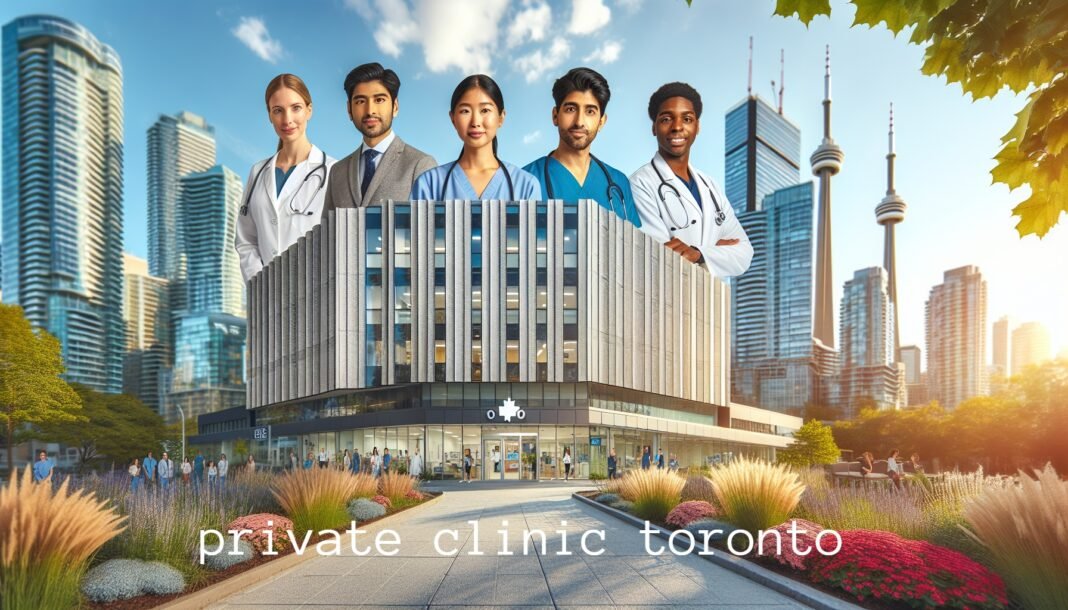Navigating the landscape of healthcare in private clinic toronto can often seem daunting, especially when seeking specialized and timely services. Fortunately, private clinics in Toronto, like the globally recognized Cleveland Clinic Canada, provide a beacon of superior patient-centered care in bustling downtown and midtown areas.
These institutions excel by offering a wide range of services including cardiology, dermatology, and sports health, alongside innovative approaches to traditional medical care like on-demand virtual care and comprehensive employer services. Moreover, the unique perks and diverse specialties available at these clinics underscore their pivotal role in enhancing healthcare access and personalization.
The popularity of private clinics stems not only from their ability to offer immediate, specialized services but also from their contribution to pioneering fields such as preventative medicine, mental health, and sports medicine. This article will delve into a comparative analysis of private versus public healthcare services, highlighting the advantages exclusive to private clinics in Toronto.
Furthermore, we will explore the impact of technology on private healthcare, enriching patient experience and medical history management through platforms like MyChart and TytoClinic. Through patient testimonials, the article will also bring to light the real-life benefits and transformations experienced by individuals, setting a comprehensive guide to navigating the healthcare landscape with a focus on private clinics.
Top Reasons for the Popularity of Private Clinics
Private clinics in Toronto are gaining popularity for several compelling reasons, primarily due to their ability to provide expedited and specialized medical services. Ontario’s plan to expand the number of private clinics to include a broader range of public health services such as MRIs, CT scans, and various surgeries is a testament to their increasing role in the healthcare system.
This expansion is designed to alleviate the long wait times often associated with public healthcare, allowing more procedures to be performed efficiently. Patients benefit from quicker access without the burden of out-of-pocket expenses for OHIP-insured services, making private clinics an attractive option for immediate care needs.
Moreover, private healthcare facilities like Medcan Clinic and Cleveland Clinic offer advanced medical technologies and specialized treatments that are not always available in the public system. For instance, Medcan Clinic provides comprehensive health assessments and same-day appointments, which cater to the busy schedules of urban residents.
The availability of such services contributes to the enhanced patient experience, as individuals receive personalized care promptly. This level of care, combined with the use of cutting-edge technologies, positions private clinics as leaders in healthcare innovation in Toronto.
The landscape of private healthcare in Toronto is also characterized by a variety of specialized services that cater to specific needs. For example, DeerFields Clinic focuses on anti-aging treatments, while Healthcare 365 offers preventative care with round-the-clock access to healthcare professionals. These clinics not only provide medical services but also focus on enhancing the overall wellness of their patients.
As a result, more Canadians are turning to private clinics for regular health services, including those provided by family physicians, which has seen a significant increase in patient enrollment at facilities like SanoMed Solutions. This shift underscores the growing reliance on private clinics to meet diverse healthcare needs in a timely and efficient manner.
Comparing Private and Public Healthcare Services
In Canada, the healthcare system is a blend of public and private entities, each playing a distinct role in service delivery. Public healthcare, epitomized by Medicare, is celebrated for its universality and accessibility, ensuring all citizens have access to essential medical services.
The Canada Health Act of 1985 reinforces these principles, mandating coverage for all basic hospital and physician services. Despite this, the public system often struggles with longer wait times and limited access to specialized treatments, which can be a significant inconvenience for patients needing timely care.
On the other hand, private healthcare in Canada is attracting attention due to its ability to alleviate some of these pressures. Private clinics often offer quicker access to services like MRI scans and specialist consultations, which are appealing to those who can afford them.
However, this shift towards private healthcare has sparked concerns about the potential for increased overall healthcare costs and a disparity in access to care. Studies indicate that private financing does not necessarily lead to better health outcomes and may, in fact, undermine the equity of the healthcare system by privileging those who can afford to pay.
Moreover, the evolving landscape of healthcare has seen a decrease in public spending from 76% to 70% over the past four decades, contrasting with the U.S. where healthcare is almost evenly split between public and private funding.
This shift raises questions about the sustainability and performance of Canada’s healthcare system, with some advocating for increased private sector involvement as a solution to funding and efficiency challenges. Yet, the core value of universality remains a cornerstone of Canadian healthcare, making the debate around private versus public healthcare a pivotal issue for policymakers and citizens alike.
The Role of Technology in Private Healthcare
The integration of digital health technologies in Toronto’s private clinics has revolutionized the delivery of healthcare services, enhancing both accessibility and efficiency. Virtual care platforms have become a cornerstone during the pandemic, with a significant portion of physician services transitioning to online formats.
This shift not only catered to the immediate needs during the health crisis but also set a new standard for future healthcare delivery. Virtual walk-in clinics, where patients can consult with physicians via apps, have particularly gained traction, demonstrating high satisfaction rates among users who appreciate the convenience and effectiveness of remote consultations.
Advancements in Medical Technology
The use of advanced technologies such as Artificial Intelligence (AI), the Internet of Things (IoT), and Electronic Health Records (EHRs) in Toronto’s private healthcare sector has led to substantial improvements in patient care. AI is employed for predictive analytics to enhance patient outcomes, while IoT devices monitor patients remotely, reducing hospital readmissions.
Moreover, EHRs streamline the management of patient data, allowing for more efficient service delivery. These technologies together foster a healthcare environment that is more predictive, personalized, and participatory, aligning with modern healthcare demands.
Impact on Surgical and Therapeutic Procedures
Technological innovations have also transformed surgical and therapeutic procedures in Toronto’s private clinics. The use of medical robots for precise surgeries minimizes human error, enhancing patient safety and reducing recovery times. Similarly, Virtual Reality (VR) applications are employed for therapeutic purposes, such as in pain management and mental health treatments, offering new ways to address complex health issues.
Additionally, 3D printing technology is utilized to produce customized medical devices and prosthetics, significantly cutting costs and improving patient outcomes. These examples underscore the pivotal role of technology in not only enhancing healthcare delivery but also in ensuring patient-centered care in Toronto’s private healthcare landscape.
Patient Testimonials and Experiences
Patient testimonials offer a unique insight into the experiences of individuals who have received care at various private clinics across Toronto, highlighting the direct impact of personalized healthcare services.
At Cleveland Clinic Canada, patients like Bruce Bowser and Jennifer Footman praise the clinic’s personalized approach and comprehensive care, which they claim has significantly improved their health and, in some cases, been life-saving.
Similarly, testimonials from a private clinic in North York and Thornhill reveal deep appreciation for the commitment and expertise of healthcare providers like Dr. Rod and Dr. Dao, with patients emphasizing the transformative effect of their treatments on their quality of life.
Experiences at Rosedale Wellness Centre
Rosedale Wellness Centre in Toronto offers a wide array of services ranging from chiropractic to physiotherapy, and the positive feedback from patients underscores the clinic’s role in their health and wellness journey.
Patients appreciate the variety of treatments available, which include innovative methods like kinesio taping and dry needling, tailored to their specific health needs.
The clinic’s holistic approach to health, combining physical treatments with wellness programs, has been particularly beneficial for patients looking to maintain an active and healthy lifestyle.
Challenges and Considerations
Despite the overwhelmingly positive feedback, the private healthcare sector is not without its challenges. Lois Cooper’s experience with a for-profit surgery clinic highlights the potential pitfalls of private healthcare, where upselling and unnecessary procedures can detract from patient care.
This serves as a crucial reminder of the importance of transparency and patient education in healthcare settings. Meanwhile, organizations like the Colorectal Cancer Resource & Action Network (CCRAN) provide a supportive community for patients, offering guidance and resources that are vital during treatment and recovery, illustrating the supportive role that specialized organizations can play in patient care.
Conclusion
Throughout this exploration of Toronto’s private healthcare landscape, we’ve uncovered the significant advantages these clinics offer, from immediate, specialized medical services to innovative approaches in preventative medicine and digital health technologies.
By comparing private and public healthcare services, and delving into the transformative role of technology in medical treatments, the article reveals a clear trajectory towards a more efficient, personalized healthcare system in Toronto.
These developments underscore the vital role private clinics play in not only augmenting the city’s healthcare infrastructure but also in pioneering advancements that could shape the future of global healthcare practices.
The personal accounts and experiences shared by patients further illuminate the profound impact of these clinics on individuals’ health and well-being, showcasing the capabilities of private healthcare to provide life-enhancing services tailored to unique needs.
As the healthcare landscape continues to evolve, the significance of these clinics in offering expedited, cutting-edge care becomes increasingly paramount.
In reflection, the journey through Toronto’s private healthcare sector highlights the necessity of integrating technological innovations and patient-centered approaches to meet the growing demands for quality healthcare, paving the way for future explorations and enhancements in medical science and patient care.


